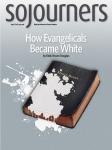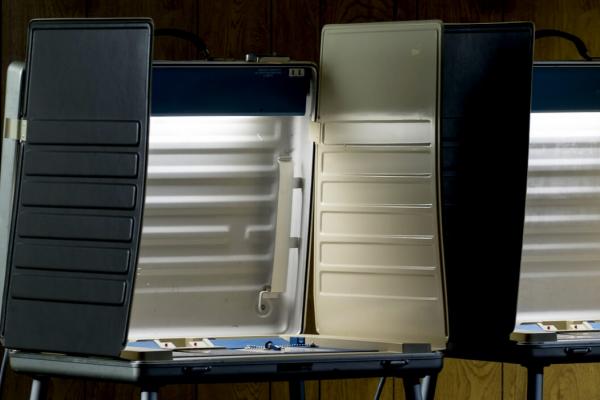CAL MORRIS WAS 20 and studying religion at Samford University in Birmingham, Ala., when he offered a stranger a ride. As they crested the Red Mountain Expressway, dropping into downtown, Morris, who’s white, and his passenger, a black man old enough to be his grandfather, talked about how bad public transportation in the city was, how hard it was to get to work without your own ride.
The next morning, in his religion classes, Morris announced he was raising money to buy his new acquaintance a car. “I was thinking: ‘I go to Samford. ... It’s one of the richest places ever,’” Morris recently remembered. “I figured I could get the guy an $800 El Camino.” Instead, his professors and peers offered calls for prayer. It was his friends at work, not his classmates, who knew what it was like to need a break, and so they pooled enough money for the car.
That was two decades ago. The “El Camino incident” set off a series of revelations for the kid raised middle class in north Alabama by evangelical parents who never really talked politics at home or at church. Morris began to see how racial and economic disparity were tied to public policy, and how his conservative Christian friends tended to ignore or fetishize vulnerable folks as nothing but needy.
He isolated himself from the evangelical community. He moved into his car in the woods with his dog. He abandoned the notion of leading a church and kept working in coffee shops, like the one where he’d met the old man, searching for ways to build the kind of community he idolized in Wendell Berry novels, searching for ways to be of use without any white savior hang-ups. What Morris couldn’t reconcile was his understanding of the gospel with the “pull yourself up by the bootstraps” mentality in his Christian community. “The marginal, the outsider, the poor. These were the people of Jesus’ heart, right? I became so disillusioned by how people who believe the Bible—the way I believe the Bible—voted that it drove me crazy,” Morris said.
When I first met Morris five years ago, he had three kids and about as many teeth. He and his wife were living on food stamps as they got their own coffee shop up and running. Today, he’s got a new smile and a shop nationally acclaimed for its bakery. I don’t know if it was fatherhood or if he was always this way, but the guy’s basically a philosophical Cookie Monster, comically loud and capable of referencing passages from Noam Chomsky while flipping a giddy toddler over his shoulder. At 41, he’s living into the ideal he dreamed of in the woods. I’ve watched him at work, defrosting the ice maker while counseling a patron who’d recently lost his father. I spent my first weary months of motherhood toting my boy to his shop as our outing-for-the-day. When I told Morris I was writing about Christians and voting and asked if I might use him as an example, he told me he had a confession: “I haven’t voted in a while.”
“How long’s a while?” I asked.
He was quiet for a minute.
“Twenty years.”
The privilege of apathy
Turns out, Morris has a kind of ethically induced political paralysis.
Because no one candidate or platform neatly marries to his religious principles or community-approved ethical code, opting out of the political process altogether feels like the higher moral choice. Even though he believes a conservative reading of the Bible leads to progressive politics, he couldn’t bring himself to vote—for most of his adult life.
In part, the problem for Morris is choosing a candidate from a party associated, in his neck of the woods, with immorality. “Christians have marinated in this culture where Democrats are beyond the pale,” said Fred Shepherd, chair of the political science department at Samford University and author of Christianity and Human Rights: Christians and the Struggle for Global Justice. A lot of Christians are struggling to turn away from the Republican party, Shepherd explained, even as GOP candidates increasingly do not reflect conservative morals.
Regardless of party, many Christians are indoctrinated to believe that government is inherently sinful. Theodore Trost, a professor of religion at the University of Alabama, explained it to me this way: “There’s no righteousness there, so why bother?”
I wish it was this easy to explain who Morris is. Both of these explanations are right, and both are wrong. Even the El Camino incident and the summary of the domino effect it had on his life is a too-tidy narrative; the truth of how we vote is harder to make sense of.
When I first started to work on this story in early 2017, I wanted to talk to Alabama Christians about how faith informed their voting. It was a simple idea: A story about listening to and holding space for opposing opinions. But then the Republican and Christian nationalist Roy Moore decided to run for the U.S. Senate seat vacated when Jeff Sessions became the U.S. attorney general, and things changed. Moore was already a contentious figure for defying federal law in favor of his own brand of “biblical justice,” and then he was accused of being a sexual predator and pedophile—and still most evangelicals stood by him as he pursued the seat.
For some, Moore became unmistakable proof that evangelicals had shed their last shred of morality to stand with the Republican party. Moore’s staunch supporters have been called religious zealots by the politest of Southern churchgoers. The editor of Christianity Today declared a generation would have to pass before the integrity of the Christian faith or its evangelical followers might be restored.
Alabama Christians were the story du jour as examinations of faith and voting in my home state appeared in news outlets around the world. For my job at Scalawag, I wrote about Christians who opposed Moore and how black organizers, mostly Christian women, were responsible for his ultimate defeat despite having serious concerns about his Democrat opponent, Doug Jones. Countless other outlets published nearly every possible take on Christian voters.
My previous conversations with witty, lipsticked conservatives and sandaled Jesus-loving socialists suddenly felt less revolutionary.
‘What’s the point in voting?’
One group not showing up in the headlines? Politically apathetic Christians. Even though 86 percent of Alabamians identify as Christian, and even though in high turnout races nearly half of eligible voters don’t participate, news articles weren’t talking about the folks who don’t show up at the polls. There’s no one demographic breakdown of these people, just as there’s not one way to describe their apathy.
What I encountered ranged from the righteous “this world is broken so let’s focus on the next” to a kind of middle-class blasé to the downright nihilistic. “The entire world is falling apart,” a 23-year-old graphic design student told me during her shift at an outlet mall 20 minutes south of Birmingham. After she rattled off a litany of modern problems (corrupt politicians, unaffordable health care, global warming), she took a deep breath and asked, “What’s the point in voting?” I heard different versions of the same question again and again. “Why waste my time?” asked a black millennial who wasn’t willing to get his hopes up for a Democrat in deep-red Alabama, where state-sanctioned voter suppression has repeatedly been at the center of federal investigations. “Who am I to decide?” asked a white middle-class artist whose own family admittedly never felt the blows of regressive policy and whose affluent Christian social circle shared the same unaffected disinterest.
No matter the impetus for apathy, the result is a lot of votes left on the table. If we’re to believe those who say we’re at an ideological crossroads in this country, where the political schism is growing deeper—the generation split, the urban-to-rural split—then these are the folks sitting quietly in the dark divide. What we lose along with their votes, of course, is more-accurate representation, democracy of all, where our leaders reflect the multiplicity of our population and where our policies address inequities among those very people: in pay, housing, imprisonment, education, and so on.
It’s those same disparities Morris began to recognize when he was a 20-year-old student. Yet as the Alabama Senate race exit polls showed, and my own reporting uncovered, white Christians, who are over-represented in positions of political power in this country, are less apt to vote because of those convictions.
To my fellow white Christians, I ask: If our beliefs paralyze us from participating in the systems affecting us all, if they blind us to the ways these systems have power to harm or help our neighbors, then what good are they?
Claiming power and responsibility
“We should do politics better, not opt out,” Katelyn Beaty told me recently. Beaty is a popular Christian writer whose work focuses on justice. “Obviously, Trump’s and Roy Moore’s promises to ‘save’ people who feel forgotten, such as white working-class communities, or to return our country to some golden age of Judeo-Christian righteousness, are hollow and, in some sense, idolatrous. No one person or party has the power to do this.” Beaty said Christians must recognize the responsibility of democracy, despite its imperfections.
Isn’t everything imperfect? Is there anything we participate in that isn’t inherently flawed?
For two decades, Morris couldn’t reconcile the ways capitalism ultimately won out against humanitarian efforts despite all the empty talk about helping people. He was turned off by the “incessant hypocrisy,” but he was also turned off by similar hypocrisy in the church.
A reckoning of his political inaction meant a deeper reckoning with his fellow Christians.
“I think this is where Trump and Roy Moore are good for the Christian conservative community, especially for the apathetic voter like me,” he said. “It’s like: ‘Holy s**t, our name’s getting run through the mud.’” After the recent elections in Alabama—Jones’ victory as well as the young progressive Randall Woodfin upsetting the moneyed incumbent in Birmingham’s mayoral race—Morris said he felt a “wake-up call” and was planning to take his civic duty more seriously.
But he still doesn’t have faith in government.
“I used to think progress came from the church. But it’s people,” Morris said. “It’s persistent citizens leading action that brings about change. It’s those people putting pressure on political leaders to make change. I get that now.”

Got something to say about what you're reading? We value your feedback!
